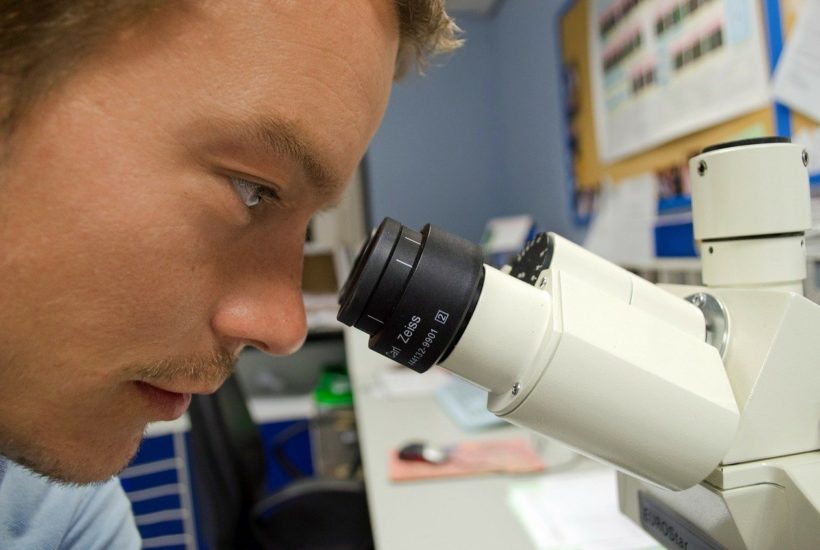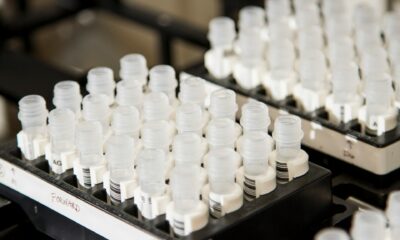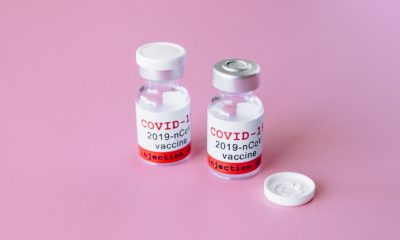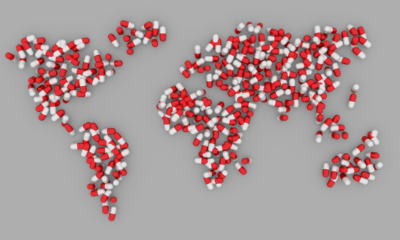Biotech
Avigan as a possible treatment against COVID-19
Avigan is an antiviral drug offered by Toyama Chemical. This Japanese laboratory had been bought by the giant Fujifilm as part of its diversification in health care, while its business model in photographic film was collapsing. Avigan’s mechanism of action, which selectively inhibits the RNA polymerase involved in viral replication, is considered plausible to show efficacy against COVID-19.

Avigan, a medicine developed for the treatment of influenza, has been approved for this indication in Japan since 2014. Considered potentially teratogenic to the fetus, however, it is not available in pharmacies and hospitals. The use of Avigan is only envisaged in the event of an epidemic of new or re-emerging influenza viruses in which other antivirals would not be sufficiently effective. Only in these emergency cases can the Japanese government decide on its use.
Discover the world’s most interesting financial news with the mobile app Born2Invest. The app provides its readers access to the latest news in global business, stock market, finance news, and also trending topics like bitcoin, cryptocurrency, and biotech. Our app is being updated throughout the day.
Avigan is only available in a few markets, including the Chinese one
Avigan has entered only a few markets. However, there is some evidence of its use in China with registration in 2015 under the name Favilavir. In addition, on Toyama’s website, the review of its pipeline mentions a phase III ongoing in the United States in the treatment of influenza.
Thus, Avigan has never succeeded in replacing Roche’s Tamiflu (oseltamivir) in the treatment of influenza, as originally intended. In 2014, however, it has been anticipated in another key indication, the fight against Ebola. Its big advantage was that it could be administered in tablet form. As for its active ingredient, known as favipiravir (or T-705) and its raw formula C5H4FN3O2, its chemical structure seems relatively simple. It is a derivative of pyrazinamide, known in the treatment of tuberculosis.
Avigan might show efficacy in the treatment of COVID-19
However, it may be in 2020 that Avigan will take his real revenge on Tamiflu, as the latter has not proven effective against COVID-19. The Roche laboratory itself has agreed. “Tamiflu is designed to be highly specific to the flu virus. Because of this high specificity, Tamiflu is extremely unlikely to be effective in treating the new coronavirus,” the producer explained in a recent paper. Independent laboratory tests conducted by the Hong Kong University, School of Public Health showed that Tamiflu has no antiviral effect on the novel coronavirus,” he added.
As a result, Tamiflu was not included in the European Discovery study. Neither was Avigan, because another candidate against Ebola, Gilead’s remover, was selected. Nevertheless, at the end of March, Fujifilm began communicating about the launch of a Phase III clinical trial in Japan to evaluate its safety and efficacy against the SARS-CoV-2 coronavirus.
Avigan’s mechanism of action, which selectively inhibits the RNA polymerase involved in viral replication, is considered plausible to show efficacy. This was confirmed on April 9 with the announcement of the start of phase II in the United States. The clinical trial is expected to recruit around 50 patients with COVID-19, in collaboration with Brigham and Women’s Hospital, Massachusetts General Hospital and the University of Massachusetts Medical School.
With a possible increase in demand for Avigan, Fujifilm has already started to increase production in early March. It plans to accelerate “through cooperation with domestic and foreign partners to meet the needs of the Japanese government and other countries.”
__
(Featured image by PublicDomainPictures via Pixabay)
DISCLAIMER: This article was written by a third party contributor and does not reflect the opinion of Born2Invest, its management, staff or its associates. Please review our disclaimer for more information.
This article may include forward-looking statements. These forward-looking statements generally are identified by the words “believe,” “project,” “estimate,” “become,” “plan,” “will,” and similar expressions. These forward-looking statements involve known and unknown risks as well as uncertainties, including those discussed in the following cautionary statements and elsewhere in this article and on this site. Although the Company may believe that its expectations are based on reasonable assumptions, the actual results that the Company may achieve may differ materially from any forward-looking statements, which reflect the opinions of the management of the Company only as of the date hereof. Additionally, please make sure to read these important disclosures.
First published in INDUSTRIE Pharma, a third-party contributor translated and adapted the article from the original. In case of discrepancy, the original will prevail.
Although we made reasonable efforts to provide accurate translations, some parts may be incorrect. Born2Invest assumes no responsibility for errors, omissions or ambiguities in the translations provided on this website. Any person or entity relying on translated content does so at their own risk. Born2Invest is not responsible for losses caused by such reliance on the accuracy or reliability of translated information. If you wish to report an error or inaccuracy in the translation, we encourage you to contact us.

-

 Biotech1 week ago
Biotech1 week agoUniversal Nanoparticle Platform Enables Multi-Isotope Cancer Diagnosis and Therapy
-

 Impact Investing6 days ago
Impact Investing6 days agoMainStreet Partners Barometer Reveals ESG Quality Gaps in European Funds
-

 Biotech2 weeks ago
Biotech2 weeks agoEurope’s Biopharma at a Crossroads: Urgent Reforms Needed to Restore Global Competitiveness
-

 Cannabis18 hours ago
Cannabis18 hours agoCannabis Use and Brain Aging: What a Major Study Reveals
























